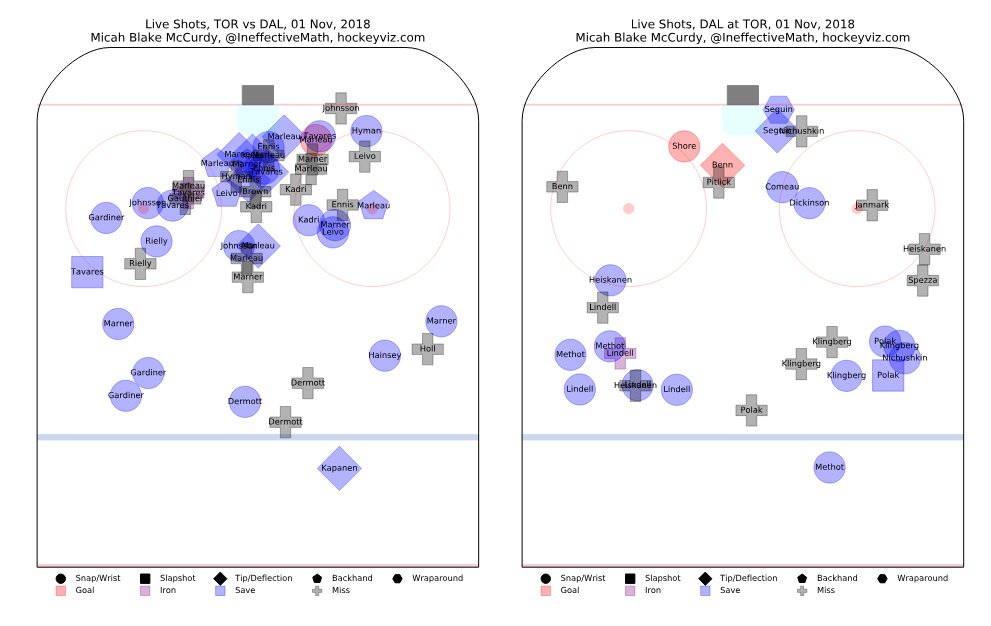herman
Well-known member
Zanzibar Buck-Buck McFate said:herman said:Zanzibar Buck-Buck McFate said:herman said:Shots are probabilistic events. Dallas got more than a little lucky. The Leafs are working and generating without two of their top scorers and play drivers. Relax.
All events are probabilistic. What do you mean here?
Some people don?t understand puck luck.
It was a serious question.
That was a pretty serious and succinct answer; my post history is riddled with long-ass write ups about this.
Evaluating a team's performance based solely on pucks that go in (or not) is what leads to the 2013-14 Leafs; they had a nice shooting percentage bender that resulted in a playoff berth in a shortened season the year before and that had management convinced the team was better than its true performance (see 2016-17 Ottawa Senators). The underlying numbers showed that they were structurally turd muffins that had some hot shooting.
A good portion of what determines if a puck goes in or not is outside the control of the players. Take Tavares' chances tonight for example. One was on target but apparently hit the crossbar. The margin there is less than the height of the puck. He had several pucks hop over his stick in the process of a scoring rush thanks to SBA ice; does that mean Tavares is trash? Marner whipped a cross-ice pass to Tavares, but it was leaning a bit on one edge and thus hopped off his stick blade, nullifying the window of opportunity to score; what if it was leaning the other way and cradled the curve of his stick as intended and he rifled it short-side shelf?
This is one of the first things Kyle Dubas explained to Shanahan and the MLSE ownership. PDO* is the 'stat' that sort of encapsulates this effect, taking the Save Percentage and Shooting Percentage of the team and adding them together. Over time, hockey history shows that teams will regress to the average, which is a PDO of 1.000 (usually a 0.915 sv% and an 8.5% shooting%). Sometimes a team can go on a run with a hot goalie (Fleury last year), or disgusting shooting (Leafs first 8 games), but it never lasts. So if you're evaluating your team in the long run, yes the score matters on a game by game basis, but coaches and managers need to keep an eye on the structure, chance generation/suppression, and basically underlying reasons why teams either score or get scored on.
* PDO is named for the internet user that first developed the stat and explained its effect. In and of itself the name is meaningless; one of the analytics team dubbed it '

